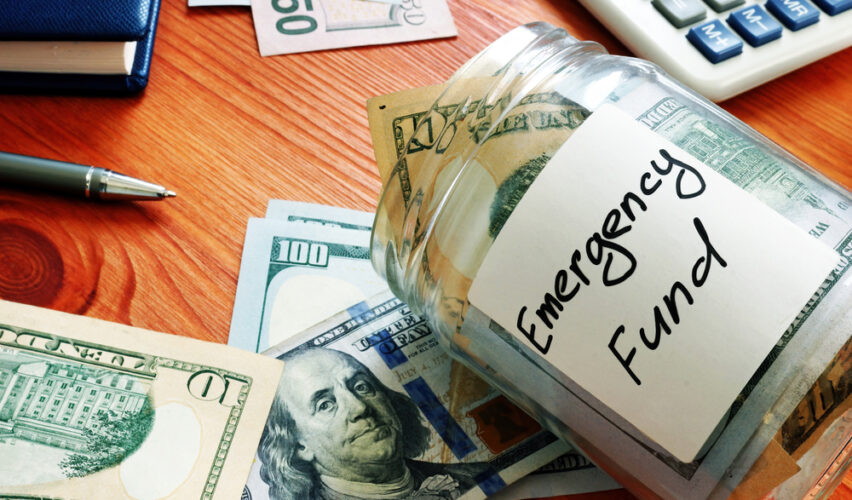When retirement throws you a financial curveball, what are your options for covering the cost of an emergency? If you tap into your traditional Thrift Savings Plan (TSP) you’ll owe income taxes on 100% of the amount of the withdrawal. And if you use a high-interest credit card, your monthly expenses may start to exceed your budget. Both of these options are risky when you’re living on a fixed income.
As The Saying Goes, Life Happens
From costly home repairs like a new roof, to health and dental care that your insurance doesn’t cover, to a family member in crisis who needs your financial help, an emergency fund provides a liquid-cash resource when life happens. When you’re forced to tap into your TSP and other retirement investments to cover rainy day expenses, your long-term financial security is at risk.
“If you set up a basic savings account linked to your checking account, you can easily transfer deposits each month to build your emergency fund.”
Start Your Emergency Fund Before You Retire
If you’re five or more years away from retirement, you can start small. Cut unnecessary spending like buying expensive coffee on your way to work or retail therapy when you’re feeling stressed.
When you do the math it’s clear you only need to put aside five dollars per day to save $150 per month. This can add up over time and provide you with a financial safety net. If you set up a basic savings account linked to your checking account, you can easily transfer deposits each month to build your emergency fund.
Continue Saving For Emergencies In Retirement
Usually, retirement is the time to stop saving and start spending. But if you weren’t able to build up a sizeable emergency fund during your working years, you can find ways to put aside money in retirement.
You can set up automatic transfers to your emergency fund for the day following your monthly FERS annuity and Social Security deposits. When you reach the age for Required Minimum Distributions (RMDs) from your TSP account, put some of the money into your emergency account.
Other Ways To Save Money For An Emergency
If you inherit a good sum of money, put a portion of it in an emergency fund before you give cash gifts to your kids or spend it on a dream vacation. If you’re planning to downsize your home when the kids are out on their own, take a portion of the sale proceeds to start your retirement emergency fund. Any type of windfall – from a larger than expected tax return to a lottery prize – can help grow your emergency fund when you discipline yourself to save for the unexpected.

























